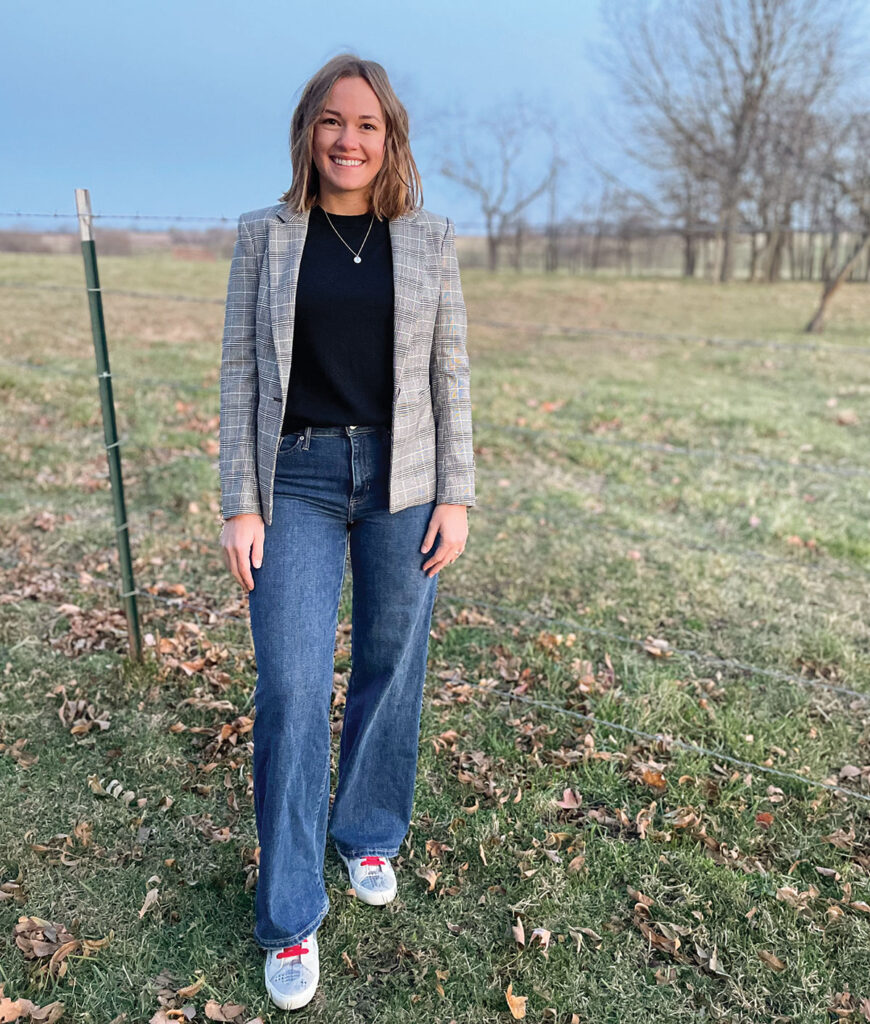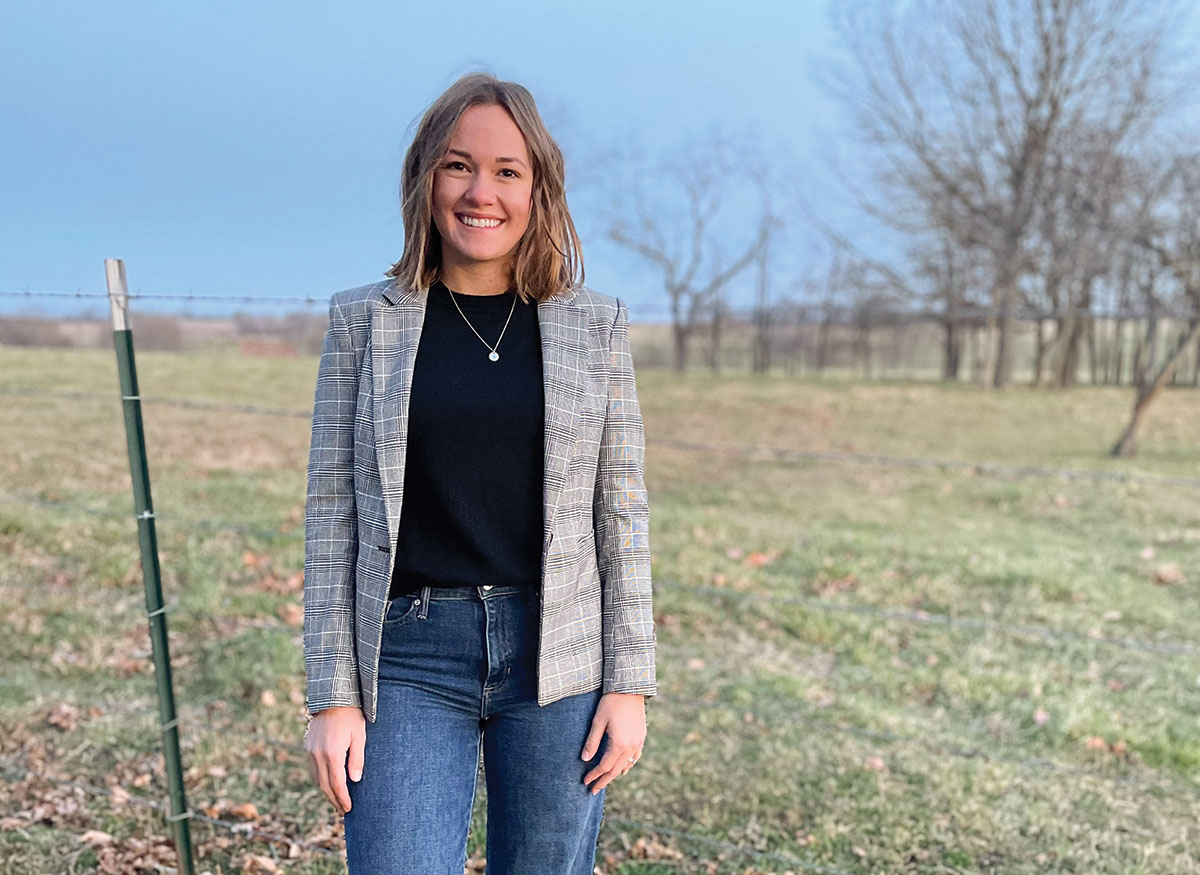
Hannah Eldridge enjoys helping other producers navigate their way through FSA programs
MOUNT VERNON, MO. – At the Farm Services Agency branch in Mount Vernon, Mo., Hannah Eldridge is one of three program technicians who assist farmers and ranchers.
Hannah works with applicants to file paperwork for the elected county committee to determine eligibility.
The FSA, in general, seeks to serve farmers and ranchers with subsidy and market loss payments.
“The mission of the FSA is to deliver effective programs and services to America’s farmers and ranchers,” Hannah explained.
The programs vary throughout the seasons. Currently, in Lawrence County, Hannah is overseeing the Livestock Forage Program (LFP), which is a program to help producers whose land has been affected by severe drought. Producers can apply to the program for payment assistance should there be a capital loss they would have otherwise profited from in better weather conditions.
Another program Hannah administers is the Livestock Indemnity Program (LIP), which provides payments to livestock producers for deaths in excess of the normal mortality, based on state and/or national averages, which are caused by adverse weather events or animal attacks. The events that qualify are typically scenarios out of the producers’ control or sufficient management.
“Last winter, the extreme cold temperatures from the polar vortex in February caused many producers to lose young calves despite their mitigation efforts. In Lawrence County alone, we had over 50 applications,” Hannah said. Tornadoes, floods, and wild animal attacks are a few examples of events the FSA would take into consideration for the LIP program, although each event is examined on a case-by-case basis and must adhere to a specific set of guidelines and program regulations.
Hannah also handles the Conservation Reserve Program (CRP) in her office, which assists producers in attaining an annual rental payment in exchange for agreeing to a set of environmentally friendly practices. These guidelines vary, including seeding practices, land management, or controlling and/or eliminating invasive species, depending on the practice the producer agrees to enroll in.
“Anyone is welcome to apply to any of these programs – we serve all. The FSA serves farms of all sizes. We’ve worked with people who have just a few head of cattle to people who have hundreds.”
— Hannah Eldridge
The office manages acreage reporting, which helps producers keep up-to-date records of cash crops or fescue in case of later crop failure due to nature’s sometimes hostile and unpredictable conditions. Because the FSA works closely with the Risk Management Agency, which handles crop insurance, the record-keeping will assist producers should they need to utilize disaster programs services later.
The office also offers applications for the Dairy Margin Coverage Program, a risk management program that will pay producers when the difference between the national price of milk and the average cost of feed falls below a certain level.
The FSA also offers the Non-insured Crop Disaster Assistance Program, which provides financial assistance to producers of non-insurable crops to protect against natural disasters that prevent crop planting or results in lower yields or crop losses. Hannah said one example of this would be a peach orchard – a non-insurable produce – that may need to utilize the program in the case of extreme weather.
Other programs include the Farm Storage Facility Loan Program, which provides low-interest financing in order for producers to build or upgrade to facilities to store commodities such as grains, oilseeds, peanuts, honey, cheese, meats.
Market Assistance Loans are available as well. “These provide financing to producers at harvest time to help meet cash flow needs without having to sell their commodities when market prices are at harvest-time lows,” Hannah said.
“Anyone is welcome to apply to any of these programs – we serve all,” Hannah reiterated. “The FSA serves farms of all sizes. We’ve worked with people who have just a few head of cattle to people who have hundreds.”
Serving local farmers hits close to home for Hannah. She and her husband Clay Eldridge have a small farm in Mount Vernon where they run a feeder-cattle operation. Clay also works for Joplin Stockyards, so the two are involved in many facets of farm life. From feeding, caring for, and selling their own livestock, to Clay working closely with the market at the stockyards, the pair understand how much effort goes into the process. They’ve also seen firsthand how the economy and weather can have such a dramatic effect on a farming operation.
Because of that, Hannah recognizes the importance of the FSA programs and how they can be a true lifeline to producers.
“I love that I get to be a public service to farmers and ranchers,” she said. “And I love that I get to work closely with members of our community.”







